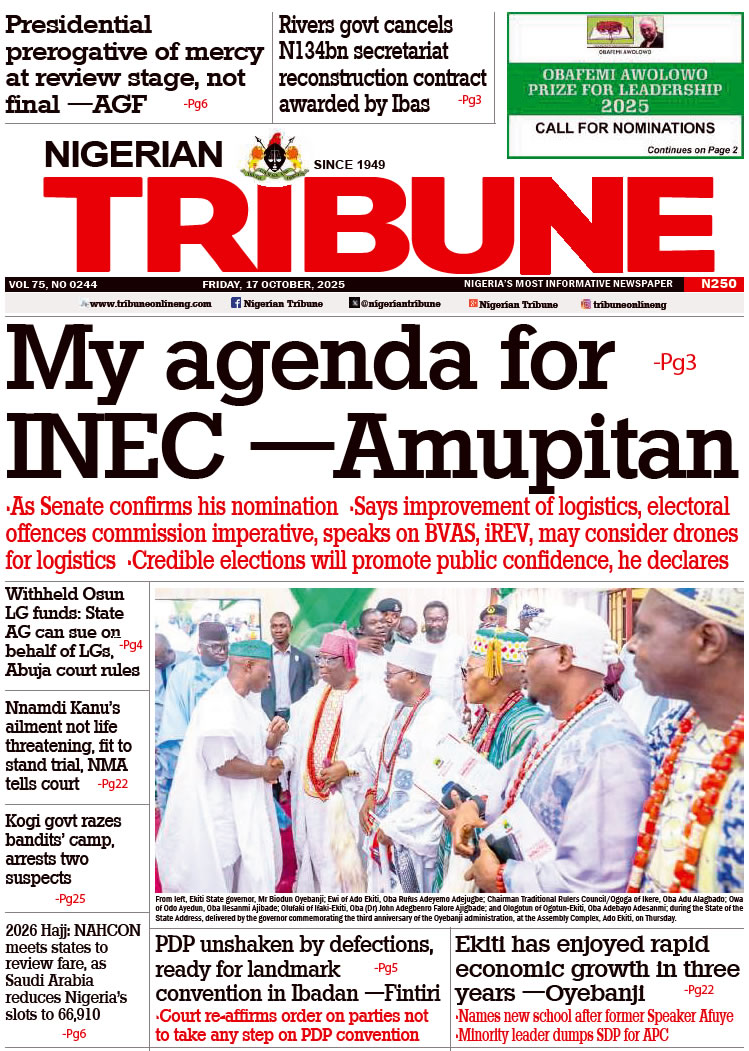The Vice Chancellor of the University of Lagos (UNILAG), Akoka, Prof. Folasade Ogunsola, has stressed the need for Africa to move away from being a mere consumer of foreign-made AI technologies and build homegrown data and tech systems that reflect the continent’s languages, cultures, and development priorities.
She said this shift is crucial for addressing the socio-economic challenges faced by the continent.
Prof Ogunsola stated this at the just-concluded 2025 International Week, organised by UNILAG with a theme, “Equitable partnership and the future of AI in Africa.”
The five-day forum brought together people from universities across the world, tech companies, government, and international organizations.
According to the vice chancellor, Africa holds the potential to become a global powerhouse, not just in adopting AI but in creating it using homegrown talents, innovations, and relevant content that best address our local realities and align with the global best practices.
She said AI is no longer the future but today’s reality that is already adopted globally, with Africa inclusive.
Ogunsola, however, observed that the future of AI in Africa cannot be built without Africans, and likewise, AI for the world cannot be built without African insights.
“But we need to let our students across the continent understand the contexts must reflect how our communities make decisions, families navigate healthcare and education systems, and how businesses operate even amidst limited resources, among others,” she said.
She added, “What is important to us in Nigeria, for example, is that our international partners joining us for this programme are not here to help us catch up, but to understand that African innovation offers solutions that the world also needs.
That is why our collaboration is strategic- to be mutually beneficial to our students from across Africa, and the rest of the world by extension.
“So, there is a need for us as a continent to shape our narrative of inclusion, innovation, and global equity in technology transformation across fields and, more importantly, in education, healthcare, governance, industry, and food security.
“This is not optional, even though we have challenges. We must be active contributors, thoughtful leaders, and builders of contextually relevant solutions, as we have taken such a responsibility seriously in UNILAG as an institution.
“AI must solve the problems that matter most to Africans in agriculture, healthcare, education, and so forth.
So, the algorithms you write, the problems you choose to solve, the ethical frameworks you develop, they will determine whether AI becomes a tool of migration or any form of dependency in Africa,” she concluded.
In his keynote speech, Emmanuel Lubanzadio, Africa Lead at OpenAI, acknowledged that AI is not new, as it has become a way of human interactions across fields and globally.
He praised UNILAG for taking AI very seriously, saying its commitment as a future-ready institution that also loves partnerships would greatly drive social-economic development not only in Nigeria but across Africa.
He said that is why OpenAI, as a global tech hub, opens its doors widely to partner with UNILAG to run OpenAI Academy on campus, noting that the academy will be the first in Africa.
Lubanzadio said the Academy would be a learning hub for the students, faculty members, and others.
On her part, Yvonne Ike, who is the Managing Director and Head of Sub-Saharan Africa, Bank of America, also observed that Africa cannot afford to sit back and continue to rely on technologies and innovations from other continents, especially the Western world.
She said the talents and resources are there, even though they may not be enough. What remains is for Africa to be bold, ambitious, accelerate, and expand opportunities to grow the economy and transform people’s lives through technology.
According to her, it is now for Africa to redefine our destinies by building our own homegrown technology infrastructures and content, factoring in our languages and cultures that address our needs and peculiarities amidst our numerous challenges.”
Ike noted that no country in the world is self-sufficient in resources, including AI knowledge and ideas, hence the need for co-creation of solutions across fields, especially education, health, and agriculture, that would make life worth living for all.
In his remarks earlier, Dr Bosun Tijani, the Minister of Communication, Innovation, and Digital Economy, expressed delight about the focus of the conversation at the event, saying it aligns with his ministry’s mantra.
He also canvassed for co-creation of AI by Africans to suit the needs of African people in medicine, education, agriculture, and industries.
According to him, AI is no longer a concept but the reality shaping the economy, society, and the very fabric of our human interactions.
The minister, represented by Dr Olubunmi Ajala, who is the Director of the National Centre for AI and Robotics, stated that even though Africa has embraced the AI technology revolution just like every other continent, the continent should be mindful of how to adapt and use it in a way that advances justice, equity, and peace.
WATCH TOP VIDEOS FROM NIGERIAN TRIBUNE TV
- Relationship Hangout: Public vs Private Proposals – Which Truly Wins in Love?
- “No” Is a Complete Sentence: Why You Should Stop Feeling Guilty
- Relationship Hangout: Friendship Talk 2025 – How to Be a Good Friend & Big Questions on Friendship
- Police Overpower Armed Robbers in Ibadan After Fierce Struggle






